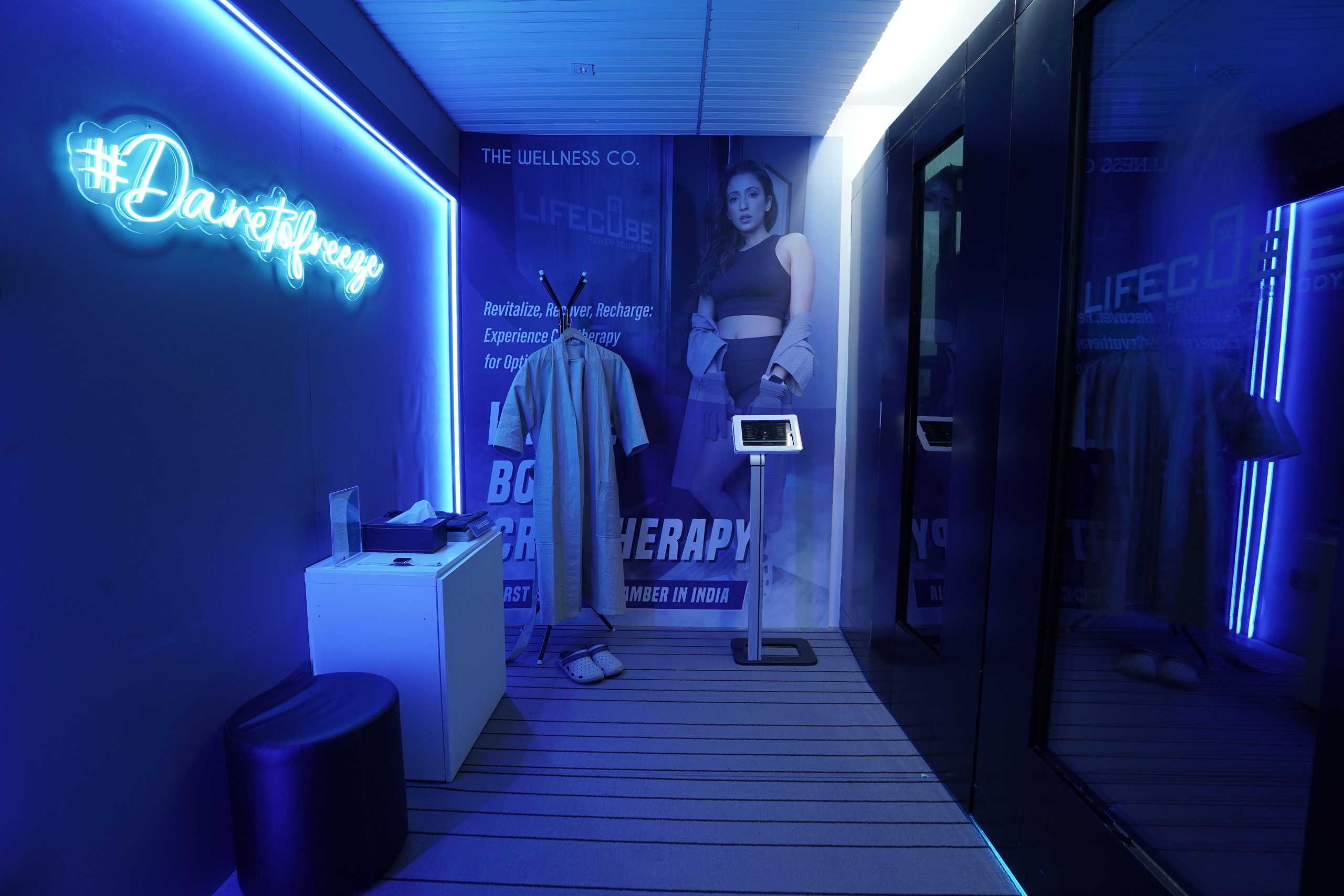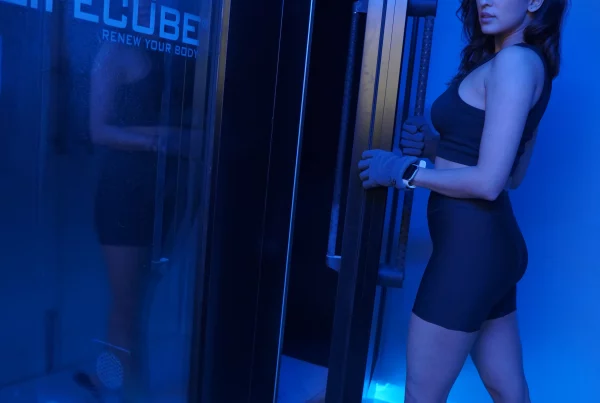Stress, anxiety, and depression are among the tendencies of contemporary society, which, in one or the other, way have become familiar to the majority of people. Some find it hard to keep their mental health intact because they face increasing work challenges, there is always the sound of gadgets around, and the rate of life is fast. One relatively new solution therapy for different diseases that tend to make rounds in recent years is cryotherapy. But does this cold treatment support anxiety and depression? As explained in this blog, cryotherapy has other uses, including being helpful for mental health and may help with stress.
What is Cryotherapy, and How Does It Work?
Cryotherapy is a modern technique that uses extremely low temperatures to treat various ailments. It usually lasts two to four minutes and may range from total body cryotherapy to localised cryotherapy, depending on the area of interest. Cold therapy was formerly administered to manage pain and inflammation, though the current style is more regulated and sophisticated.
Cryotherapy functions based on the principle that the body is set into a stress response mode, commonly known as the fight-or-flight reaction. When the body is exposed to cold temperatures, the nervous system is triggered, and then endorphins are secreted, which is known to be our body’s natural high. This reaction triggers several physiological processes, such as enhanced blood circulation, reduced inflammation, and increased mood.
- Whole-Body Cryotherapy (WBC): The individual stands in a cryotherapy chamber, where their body is exposed to cold air, typically at temperatures as low as -150°C, for 2-4 minutes.
- Localised Cryotherapy: Cold temperatures are put to a specific body area, such as a joint or muscle group, to reduce inflammation and pain.
Types of Cryotherapy
Cryotherapy is available in many forms and may be used individually or in conjunction with others to achieve a particular goal. Learning about the various types of treatment available can enable one to identify what type suits them best.
1. Whole-Body Cryotherapy (WBC)
This is the most common type of cryotherapy; people stand in a chamber where the air is cold. The idea is to expose the entire body to freezing, as this is spiritually and physically beneficial. It treats muscle and joint pain. It is used by athletes who want to recuperate and relieve their stress.
2. Localized Cryotherapy
Generally, this type employs cold packs or air to the targeted part of the body, such as joints or muscles. Applying cold to a specific area or region is appropriate for treating injuries, inflammation, or swelling. The temperature might not be as low as in whole-body cryotherapy, but it is more than enough for the limb in question.
3. Cryotherapy Facial
This is a cosmetic process in which cold air facilitates the smoothness and tension of face skin. It can even stimulate the production of endorphins, which might help improve a person’s temper for folks who fight stress or slight anxiety.
4. Ice Baths
Ice baths are more developed than cryo chambers, but they are one type of cryotherapy in which the person gets into the water and is cooled. They are not as cold as cryotherapy, but they offer many of its benefits, especially physical recovery and inflammation.
Benefits of Cryotherapy for Mental Health
Cryotherapy is slowly becoming famous due to its many benefits, including relieving pain, speeding up the recovery process and enhancing the mood of the individuals in the cryotherapy chamber. However, only in the recent past has research been conducted to assess the role of cryotherapy in mental health and how useful it is in the handling of anxiety, stress, and depression. Here’s how cryotherapy can help: Here’s how cryotherapy can help:
1. Endorphin Release
Top among the cryotherapy benefits are the effects of endorphins during the process. These are the body-produced chemicals that enable clients to fight the low moments that characterise anxious depression. These hormones not only make the mood better but also diminish the feeling of pain.
2. Reduced Inflammation
As this research shows, inflammation is not only a physical term but also a cognitive one, dramatically affecting the brain and nervous system. There is a clear relationship between stress and inflammation, which means that chronic stress can make anxiety and depression worse. In this regard, cryotherapy treatments lower inflammation levels and lessen some of the criminal’s body and mind reactions to stress.
3. Improved Sleep Patterns
Many people suffering from stress and anxiety experience disrupted sleep. Cryotherapy improves sleep by regulating the body’s nervous system and stress responses. A good night’s sleep is important for mental health, helping individuals recover from emotional fatigue and stress.
4. Nervous System Regulation
Exposing the body to extreme cold stimulates the nervous system and enhances its ability to regulate stress. Over time, repeated sessions of cryotherapy for mental health can help desensitise the body’s stress responses, making it easier for individuals to manage daily stressors.
5. Mental Clarity and Focus
Many users report a sense of heightened mental clarity and focus after a cryotherapy treatment. This is caused due to the increased blood circulation triggered by cold exposure. Enhanced circulation makes more oxygen reach the brain, promoting clearer thinking and better decision-making.
What Are the Pros and Cons of Cryotherapy?
While cryotherapy has been touted for its benefits, it is essential to evaluate the pros and cons before incorporating it into your mental health routine.
Pros of Cryotherapy
- Fast Stress Relief: The immediate release of endorphins can create a quick sense of relief from anxiety and depression.
- Non-Invasive Treatment: Unlike medications, cryotherapy does not involve drugs or chemicals, making it an appealing option for those seeking natural, alternative therapies.
- Reduces Physical and Mental Inflammation: Cryotherapy can ease physical pain and emotional stress by lowering inflammation.
- Holistic Approach: Cryotherapy offers a holistic treatment option, aligning well with those who prefer to explore alternative therapies for mental health improvement.
- Potential Weight Loss: Although not directly linked to mental health, the metabolic boost cryotherapy may help with weight management, which can, in turn, improve self-esteem and reduce stress.
Cons of Cryotherapy
- Not a Cure-All: While cryotherapy can complement other treatments for anxiety and depression, it is not a substitute for expert and professional mental health care or therapy.
- Cold Sensitivity: Cryotherapy may be uncomfortable or even harmful for individuals with conditions like Raynaud’s disease or sensitivity to cold.
Discover the Power of Cryotherapy with The Wellness Co.
Cryotherapy is becoming popular to solve many health issues and promote physical and spiritual wellness. Because it can increase endorphin levels, decrease inflammation, and enhance sleep, it may be a desired choice for people with anxiety, depression, and chronic stress. Indeed, cryotherapy is a remarkably effective therapy, but it is imperative to pay attention to its demerits, which include cost factors and the relativity of the outcomes.
For those seeking alternative, complementary medicine methods of reducing stress, cryotherapy can be considered a healthy option for inclusion in the stress-reduction programme. Cryotherapy can freeze out physical pains in the body and improve one’s state of mind and mental health.
Ready to experience the Benefits of Cryotherapy?
Wellness Co. is committed to our clients’ mental and physical health through cryotherapy treatments that relieve stress and anxiety. Whether a person is only interested in cryotherapy for stress relief or improving the quality of life, our knowledgeable team will assist with each step. This means you gain the best safety and architectural design experience from our health facilities.
Get in touch with The Wellness Co. today to start using our treatments for one of the most important aspects of life: stress-free health. Book your appointment today.




